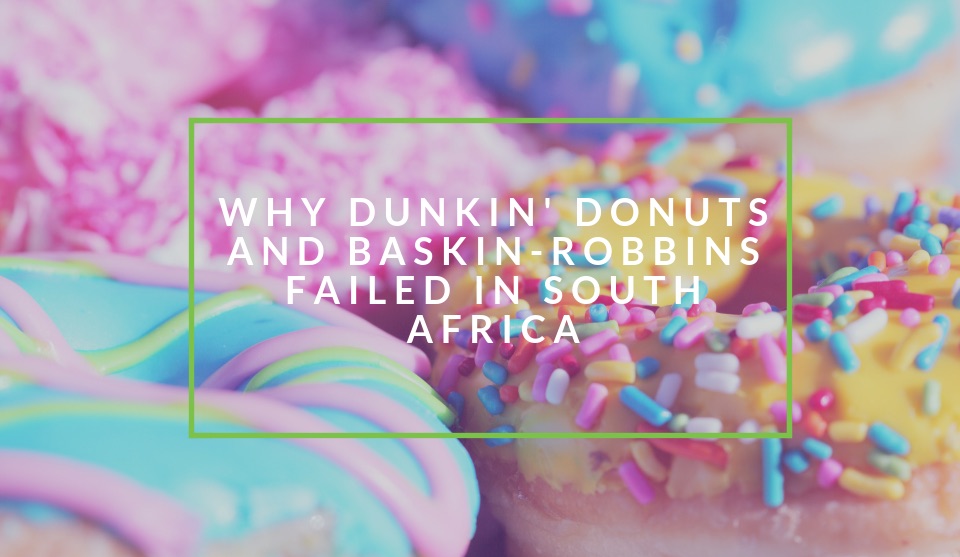Recent posts

Ace of Trades
Testing the new feature 10 Nov 2020
10 November 2020

Alarming
hello#;'s
03 June 2019
Alarming
Testing special character's(
22 May 2019
Geek Chic
How To Bend An Image Using Photoshop
18 February 2019
Popular posts
Fashionista
Trending Fashion Hashtags To Get Your Posts Noticed
05 April 2018
Extravaganza
Trending Music Hashtags To Get Your Posts Noticed
24 August 2018
Beauty Basics
Trending Beauty Hashtags To Get Your Posts Noticed
05 July 2018
Extravaganza
Trending Wedding Hashtags To Get Your Posts Noticed
18 September 2018
Why Dunkin Donuts & Baskin Robbins Failed In South Africa
17 February 2019 | 0 comments | Posted by Che Kohler in Masterchefs
American fast food brands Dunkin" Donuts and Baskin-Robbins opened up in South Africa back in 2016 with scores of South Africans lining up to feed their curiosity and try the store they may have seen on TV shows and movies. The hype did not sustain itself and stores quickly become a baron and in some areas white elephants that were burning through runaway.
Dunkin' Donuts and Baskin Robbins sit under the Grand Parade Investments Ltd (GPI) that successfully brought Burger King to South Africa just a few years earlier with the food restaurant solidifying itself as one of the top franchises in the country. GPI was trying to replicate the formula with the two dessert chain stores, but as of 2019, they will be no more.
Fast food chain makes a quick getaway
The company that owns Dunkin’ Brands Group Inc.’s local Dunkin’ Donuts chain has applied for voluntary liquidation of the unit to reduce the scope of further losses. While this will mean job losses for a few South African's in a struggling economy, it also provides us with an interesting lesson that shows us that no brand is too big to fail in South Africa.
The South African leisure company Grand Parade Investments Ltd., which ran the stores as a franchise since late 2016, is also closing down its Baskin-Robbins ice cream stores, along with the Dunkin’ chain. Grand Parade had high hopes for the franchise and stated back in 2016 that it wanted to have 290 Dunkin’ stores in South Africa in 10 years, and purchased the rights to expand the brand into six more countries in Africa.
Now after launching 11 Dunkin' Donuts stores and 5 Baskin-Robbins outlets in less than three years all in the Cape Town area Grand Parade decided after making a push to focus on its Burger King restaurants and an unsuccessful effort to sell the two unprofitable brands. Grand Parade Investments (GPI) has announced that it has closed down Dunkin Donuts and Baskin Robbins in South Africa due to poor performance.
So why did these American powerhouse brands fail on our shores? Let's take a look at possible issues with how the franchise applied itself to the South African market and mistakes that may have proved too costly in the process.
Failure to adapt the product
Both brands appeal to the decadence of the experience with a wide selection of products which are this can often alienate consumers especially first time buyers. If you want to have a mainstream brand, you need to focus on the South Africans' need for simplicity and cost-effectiveness. The menus were far too extensive, and the demand and interest did not match and having all that product and not enough demand was always going to eat into operating costs, especially for products with a very short shelf life.
Doubling down on key flavours and simplifying the menu to allow consumers to try the service without the overwhelming decision fatigue a large menu provides makes it easier for first time buyers. If you're doubling down on your best flavours, you're also more likely to offer a superior experience that will have the consumer coming back for more. Once you've established a viable return rate of customers, you can then expand the menu as the churn rate of consumers becomes sustainable for more product/ranges.
Solidifying a corner of the market
To establish a franchise, you need to firstly create a foothold an anchor store or 2 that can manage the current demand, and as you see demand increasing to the stores capacity, you can then assume people are travelling from outside the immediate area to enjoy the product. You can then look at opening stores in strategic areas that compliment one another and allow customers to access the stores easier for more frequent use. These brands never really did that and opted for high food traffic locations in malls with high rent, this increased set up, and operation costs and the trade-off was not worth it. The brands never exited the Mother City, and rollouts slumped in 2018. As of February 2019, there are only 11 Dunkin Donuts stores in the country – all in Cape Town and surrounds – while only 5 Basking Robbins outlets opened, all in the same city.
While dealing with the physical constraints, they also did not position the brands well psychologically and decide on an ideal target market for South Africa. The pricing indicates it's for the middle and upper middle class which already narrows there appeal. Then we can count out the steadily growing health-conscious middle class which further narrows focus. Trying to build a sustainable franchise of 16 stores off the backs of a very narrow focus in a small physical area was never going to be a profitable exercise. There was an oversupply for a demand that was not there or was never established through years of service and brand affiliation.
Junk food brands that have been successful cater from working class right up to the middle class and did not alienate any subset of the market, they look to find broad appeal with products tailored to each pricing tier.
Failure to leverage the brand
In the two years that Dunkin Donuts has been in South Africa, it has never been top of mind when I nor many South African's thinks of having a doughnut. The local grocery store bakery could easily handle my minimal doughnut cravings while I grab the rest of my weekly shopping. In America, Dunkin' Donuts & Baskin-Robbins started back in the 1950s and had built up a culture and brand association over those 60 years.
In South Africa there is very little to no context or affection for the brand, we've seen it in movies and TV series, and that's about it. We don't have any memories attached to it nor any memorable experiences unless you've been to the store out of sheer curiosity and not bulked at the price and range of menu.
These brands effectively wanted to change fast food culture in South Africa from opting for a meal as other franchise offers to have a dessert as your meal. To introduce this option would take time and reach the massive amount of people to create sustainable demand was not going to come from stores. You needed to break into the rhythm of South Africa.
As I mentioned earlier South African's get their doughnuts and ice cream from retail stores, these brands should have looked to aggressively target consumers during their grocery shopping experience by having the product sold within retail stores inside stores. Provide consumers with an introductory experience and then upsell them on the various services that only the stand-alone store can provide.
The brand should have looked to build some low-cost kiosks that would drive simple trails and referral business to the larger stores would handle retention.
Rigid pricing structure
South African's don't buy doughnuts in 1, 6 and 12 that is not our experience or expectation of this kind of service. We are conditioned to be able to pick as many or few as we like at any number and not to be punished or locked in by a rigid structure to get what we want. If we wish for four doughnuts I don't want to be upsold to 6 for a cost saving and then to not eat the waste I paid for, that's a waste and a poor customer experience.
The pricing nor the experience catered to what South African's are used to and again, alienating them after their first purchase does not work well for retention. South African's are price sensitive consumers and comparative shopping is second nature to us, we don't merely spend for convenience sake, we want the best value for money, and these brands did not deliver on that front. These brands offered an overcomplicated and overpriced solution to a service South African's were used to from their grocery store and to break that value chain you would have needed to come up with better selling points to pull consumers away from what they know and love.
Sluggish South African economy
The fall of these US brands can't be blamed entirely on the internal politics, product and marketing but also macroeconomic factors at play. South Africa's economy has primarily limped on with flat growth in a sluggish economy. When economic growth stifles, consumers are first to feel the pitch and brands that are deemed luxuries are first to be cut from the budget.
Another one bites the dust
Franchises are often a one size fits all approach and failure to adapt to preferences and climates will be your downfall. The failure of these two brands marks an interesting lesson for investors looking at the local market. Taste Holdings who hold the rights to both Dominos Pizza and Starbucks in South Africa are also feeling the pinch with sales down 3% and a reported loss of R87 million which does not look good for the future of those American franchise staples.
It will also be interesting to see if Fournews (Pty) Ltd. and John & Gerry’s Brands (Pty) Ltd. who hold the rights locally to Krispy Kreme will suffer the same fate or will the exit of these brands open up enough of a market share for the brand to survive.
What do you think? Did you try Dunkin Donuts? Do you agree or disagree with my points? Let me know in the comments
Looking for a junk food fix?
Do you need someone to help your junk food cravings? Find local retailers in your area
Are you a snack expert?
Do you own or run a snack store or junk food catering business? Then why not register on nichemarket and put your business in front of thousands of nicheseekers every month
Get started with nichemarket
Registering with nichemarket is easy, all you will need to do is head over to our sign up form and follow the instructions. If you require a more detailed guide on how to create your profile or your listing, then we highly recommend you check out the following articles.
Recommended reading
If you enjoyed this post and you have time to spare, then why not dive deeper down the rabbit hole and check out the following articles:
You might also like
Testing the new feature 10 Nov 2020
10 November 2020
Posted by Shamima in Ace of Trades
i describe which you are seakking
Read more{{comment.sUserName}}
{{comment.iDayLastEdit}} day ago
{{comment.iDayLastEdit}} days ago
 {{blogcategory.sCategoryName}}
{{blogcategory.sCategoryName}}
